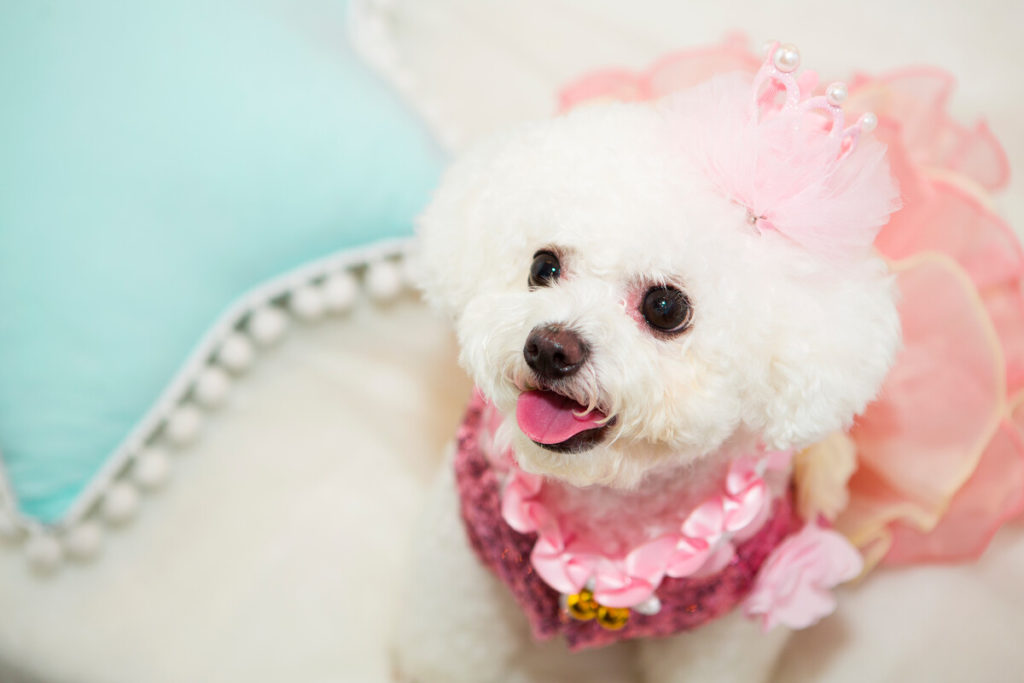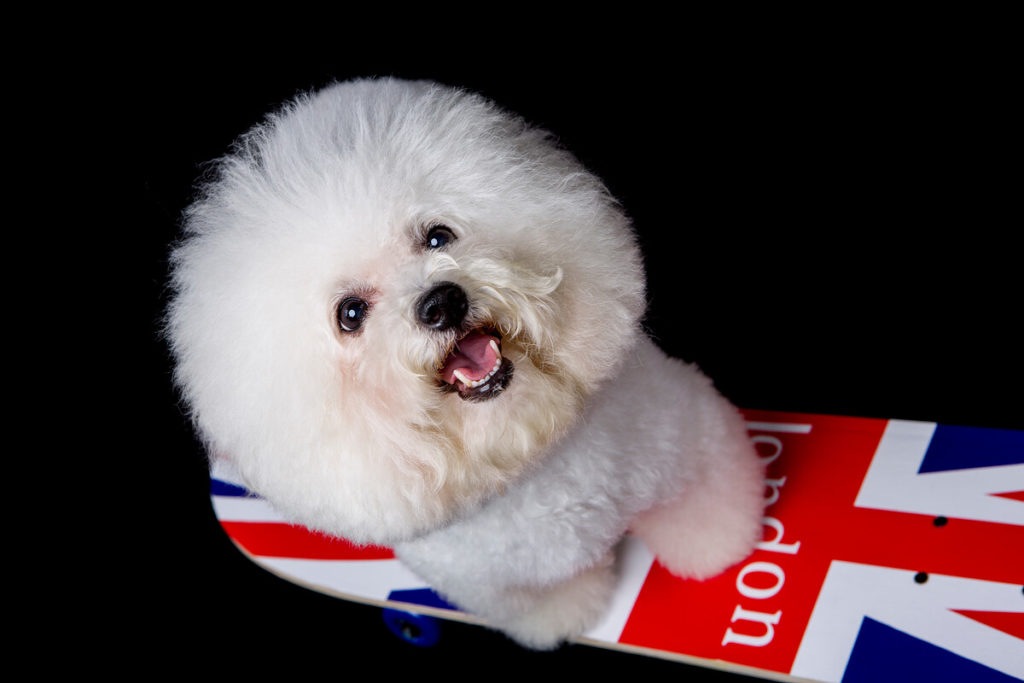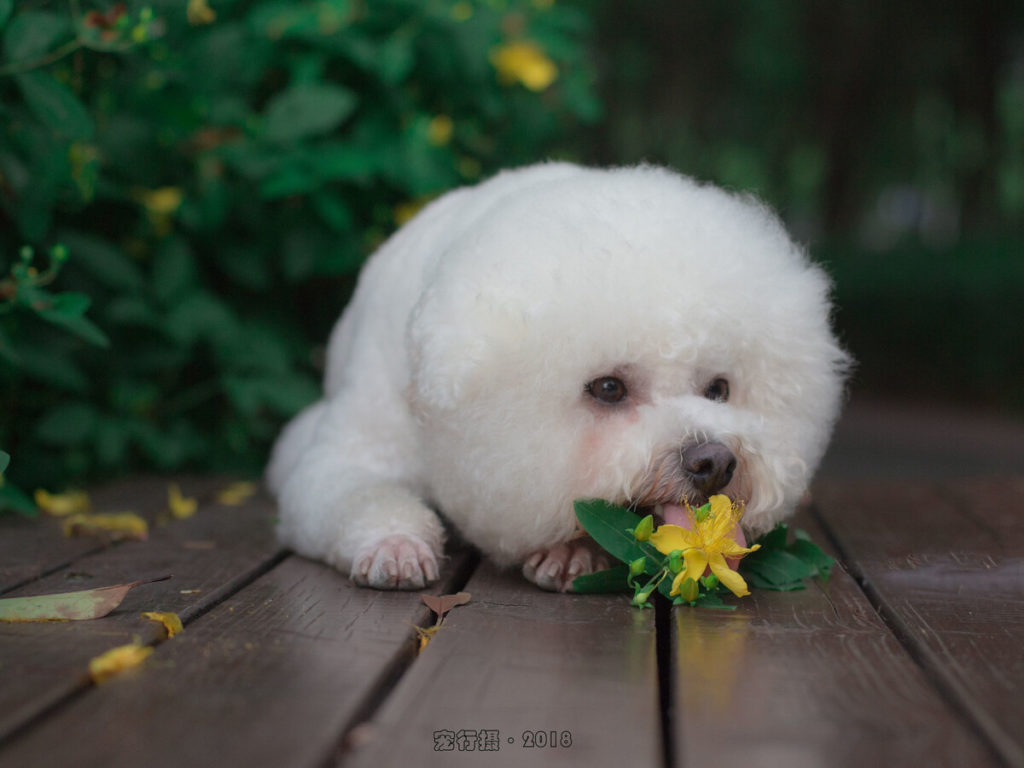As a Bichon Frise breeder, I am often asked if are Bichon Frise good with kids and are Bichon Frise good family pets? Lots of families ask are Bichon Frise good family dogs?
Vital Factors to Consider With a Bichon Frise and Kids
Bichon Frise Size is The First Consideration
A Bichon Frise dog is a good size for families who want a pet that isn’t intimidating. He can be picked up easily by the children. They can take him for walks without having him escape because he’s too strong for the children to handle.
These are all big pluses. However, small dogs can be fragile. You’ll need to teach your young children how to pick him up correctly, how to walk him, how to play with him without being rough and many other tasks that may potentially hurt your dog if not done properly. The Bichon Frise isn’t a dog breed you can wrestle with like you would with a bigger dog.
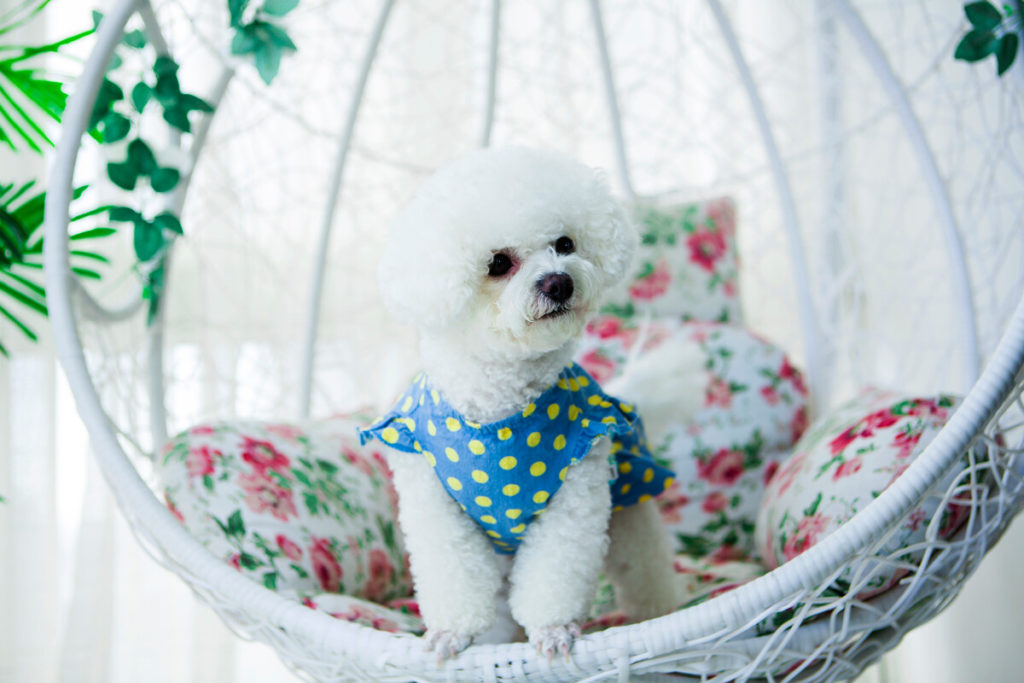
Tiny Bichon Frise Puppies are Fragile
Because Bichon Frises are fragile, it’s not recommended that you get a baby puppy as a pet if young children are part of your family. Instead, consider an older Bichon Frise puppy over the age of six months. Show breeders sometimes have older puppies available for good homes.
Are Bichon Frise Good With Babies?
Toddlers are too young to understand the respect demanded by a pet Bichon Frise. If a Bichon Frise’s toy is snatched from his grasp by a toddler, he may snap or bite as a defence action. If a toddler behaves roughly or pulls on the Bichon Frise’s tail or fur, he may bite.
The Bichon Frise and Children Safety Precautions
Children require supervision during interactions with small Bichon Frise puppies. Young children should also be cautioned and reminded that these small dogs are not as robust as the bigger dog breeds.
Noisy young children may scare Bichon Frise because they’re not used to being around children who move suddenly, make loud noises and generally have fun. If a Bichon Frise feels scared, he may run and hide somewhere and refuse to come out.
Young children must NEVER go near a Bichon Frise puppy without being supervised by an adult and Bichon Frises shouldn’t become annoyed by the behaviour of the child/children.
If your pet had a previous owner who mistreated him, it’s quite likely he’ll bite as a defence mechanism. That’s simply no good.
Small children should be careful at all times when they’re with the Bichon Frise. Avoid picking him up because if done the wrong way, he may be dropped and the result could be a leg broken or more serious injuries.

Don’t Leave a Bichon Frise and Children Alone
It’s unwise to leave a small child together with a Bichon Frise, regardless of how well they get along. The difference in size as well as the relationship between both (versus that between an adult Bichon Frise and a small child) can make a major difference in the way each treats the other.
For example, the child might be playing with the puppy and he falls onto the Bichon Frise. This might seriously cause damage because of the Bichon Frise’s young, fragile body. Health problems that may be caused include: anxiety, increased trouble with knees, broken bones and lung problems.
There’s also the situation where a small child is playing with a Bichon Frise and, for some reason, the child riles up the Bichon Frise. It’s possible that the dog may not warn by growling or barking, before snapping, potentially biting flesh and causing a break in his skin. I have seen my Bichon Frise do this if they have felt threatened in some way. I know this also happens with other Bichon Frise puppies.
It’s vital that you never leave Bichon Frise puppies and small children alone in each other’s’ company. They haven’t yet learned to respect each other’s boundaries. This precludes children under the age of four years from participating.
Remember the age factor if placed in this situation. It is simple to let small children and Bichon Frise puppies play together as long as they’re supervised by parents and it’s actually more fun for everybody involved if the young ones play and the adults laugh and enjoy the show.
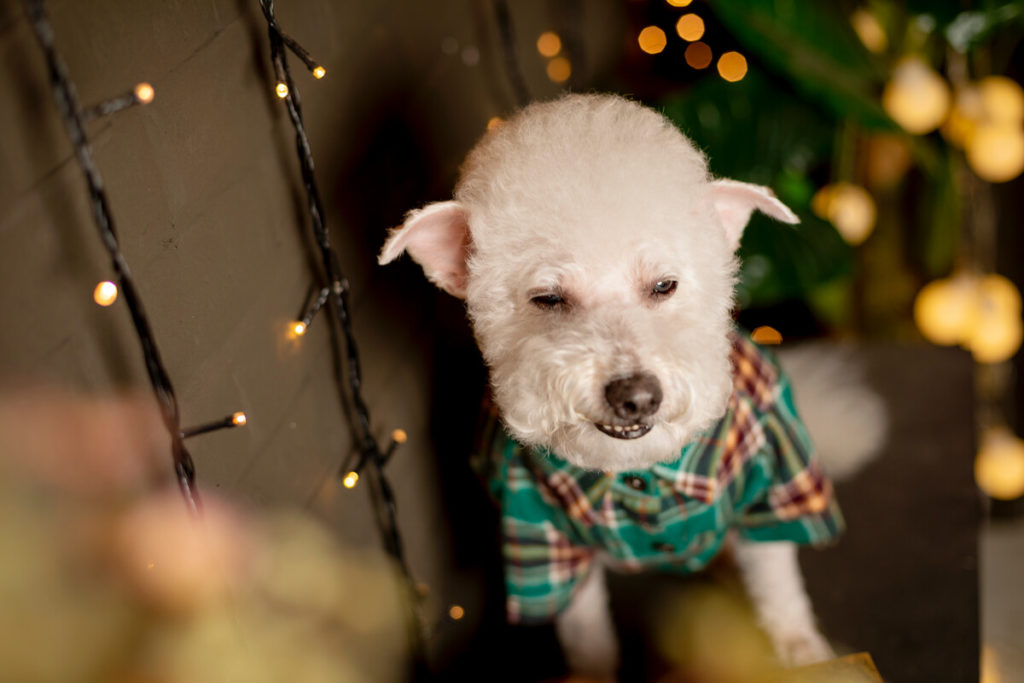
The Ideal Age for Children to Play with Bichon Frise Puppies
I’m the mother of 4 children and they all spent time with my Bichon Frise. The most important rule to observe with a Bichon Frise and kids is that all children under the age of 10 years MUST at all times be sitting on the floor while holding or playing with a Bichon Frise puppy.
Bichon Frise puppies, like most babies, have a very short attention span and will quickly decide to jump out of a child’s arms. I had an extremely bad experience with my youngest son, when he was about 8 years old breaking the rules and taking a puppy outside onto our back veranda. The puppy saw something interesting and jumped out of his arms.
She landed hard on the concrete floor, breaking her hip in many parts. This event happened in the blink of an eye. I can happily report that, after expensive surgery, this Bichon Frise puppy made a full recovery.
I’ve watched my Bichon Frise enjoy playing with children and I believe that children of any age, including infants, can have fun with Bichon Frise. This is because Bichon Frise are exciting, happy friends that can also be tender when necessary. They’re smart, so they’re likely aware that they may be interacting with someone less capable than an adult or another Bichon Frise.
The problem is Bichon Frise are a bit like little stuffed toys that just so happen to be alive. They’re so much fun to play with, so everyone wants to be around them. But their cuteness can’t protect them or the children who play with them, so the best policy when letting small children and Bichon Frise play with one another is to keep an eye on them.
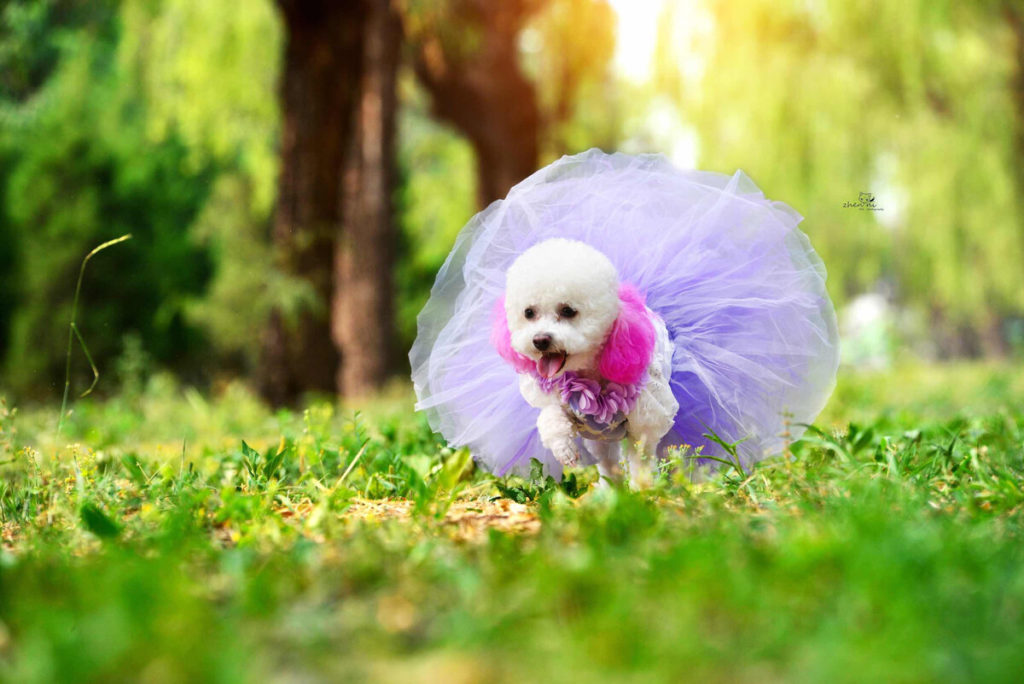
Can Bichon Frise Hurt Small Children?
Bichon Frise and small children often have wonderful relationships. When you add a young child’s happiness and natural curiosity to the playfulness and bountiful charisma of a Bichon Frise, it becomes a remarkably, exciting blend. However, there will also be certain boundaries involved in this relationship. Bichon Frise are cute and cuddly but can also react defensively if they feel threatened in any way.
If you’re a parent, it’s wise to teach your children how to behave around dogs in general. Then there’s a greatly reduced risk of making a dog feel threatened enough that he attacks without warning. Teeth and claws can quickly hurt a young child, especially if there’s no warning before the dog strikes.
There shouldn’t be a situation where a dog needs to behave aggressively when playing with a young child. However, that fact is that your Bichon Frise will defend himself if he feels threatened by the child in any way.
For example, if your Bichon Frise is playing with your child and then gets hit, it’s unlikely that your Bichon Frise won’t immediately become aggressive (especially if they have known each other for a while). However, if the child keeps hitting your Bichon Frise repeatedly, it’s impossible to know what your Bichon Frise may do, whether he will bark, bite, growl, scratch or some combination.
The main problem is that young children don’t yet understand how much strength they should use when playing with a Bichon Frise pup. If both play, it’s impossible to know how each may react. The fact is: for a while, they have to test each other’s limits and this is best done while they’re supervised.
Bichon Frise can certainly hurt young children but the reverse is also true. Because they have similar temperaments and sizes, it’s likely they will behave well but that’s never a guarantee.
Final Thoughts About are Bichon Frise Good With Children?
While Bichon Frise are terrific as pets, don’t get a puppy under 6 months as a pet if you have children under the age of ten years. A Bichon Frise with older kids is a perfect mix.


